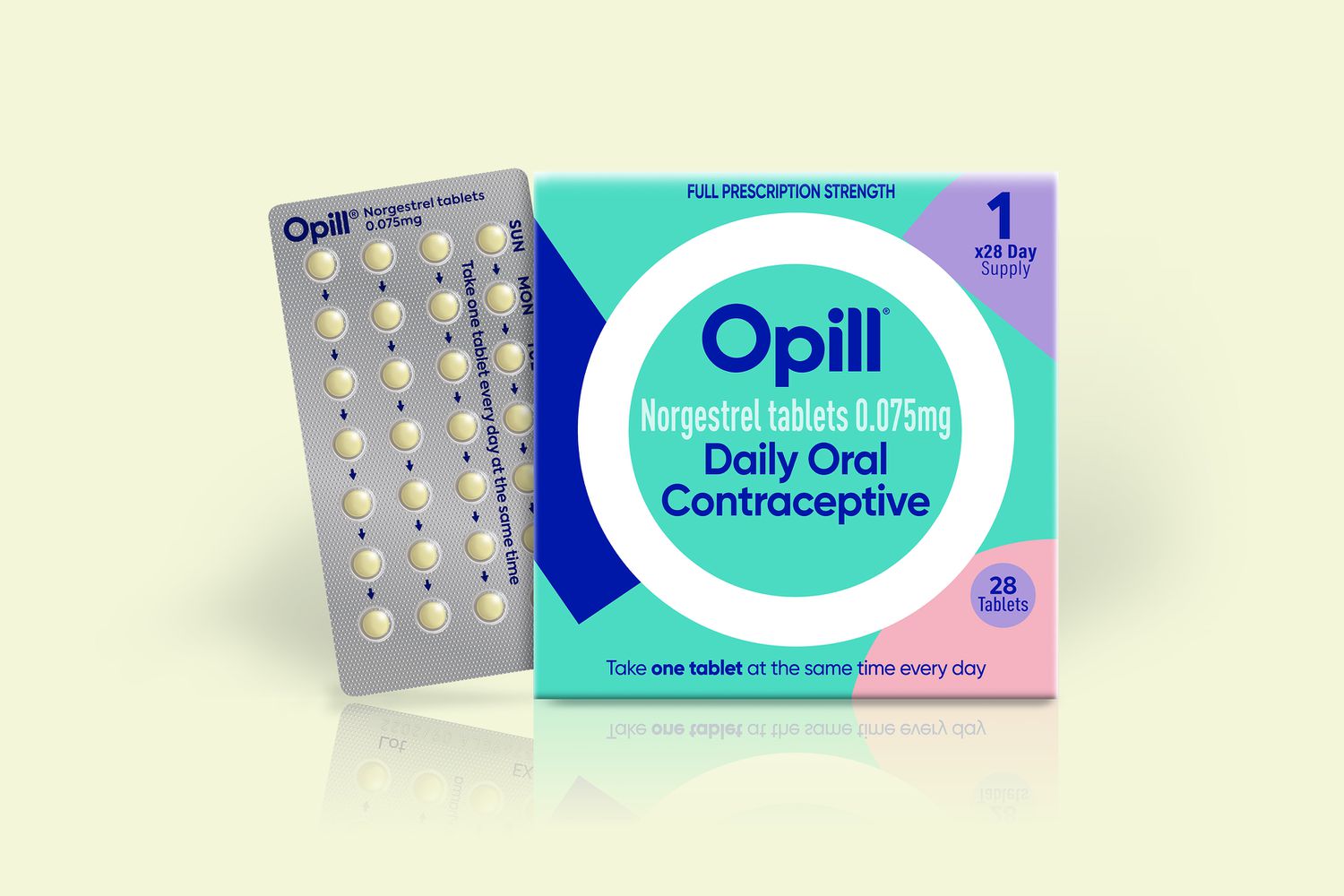Post-Roe America: How Over-the-Counter Birth Control Reshapes Reproductive Healthcare

Table of Contents
Increased Accessibility and Convenience of Birth Control
The shift towards over-the-counter birth control represents a monumental change in access to reproductive healthcare. For many, obtaining birth control previously involved navigating a series of obstacles.
Breaking Down Barriers to Access
Geographical location and financial constraints have long been significant barriers to accessing contraception, particularly in underserved communities. Many women in rural areas lacked access to healthcare providers who could prescribe birth control, while the cost of prescription birth control pills and other methods proved prohibitive for low-income individuals. Over-the-counter birth control options effectively bypass these hurdles.
- Reduced cost: Over-the-counter options are generally more affordable than prescription birth control, making them accessible to a wider range of individuals.
- Easier access in rural areas: The availability of over-the-counter birth control in pharmacies across the country, including those in rural areas, significantly improves access for those living outside of major urban centers.
- Convenience of purchase at pharmacies: Eliminating the need for doctor visits and insurance approvals makes obtaining birth control significantly more convenient.
Empowering Individuals to Take Control
The ability to purchase birth control directly impacts women's autonomy over their reproductive health. No longer reliant on appointments, insurance coverage, or potential judgment from healthcare providers, women can proactively manage their family planning needs.
- Increased agency: Over-the-counter birth control puts women in the driver's seat, allowing them to make informed decisions about their bodies and their futures without external barriers.
- Improved family planning: Easier access translates into better family planning, enabling women to make choices aligned with their personal circumstances and goals.
- Reduced reliance on healthcare providers: While healthcare providers remain crucial for complex reproductive health concerns, over-the-counter birth control reduces the pressure on healthcare systems for routine contraception needs.
Impact on Unintended Pregnancies and Abortion Rates
Increased access to contraception has a direct and demonstrable impact on reproductive health outcomes.
Preventing Unintended Pregnancies
Studies consistently show a strong correlation between increased access to contraception and reduced rates of unintended pregnancies. The widespread availability of over-the-counter birth control has the potential to significantly lower these rates further. The effectiveness of different methods, such as emergency contraception (Plan B), varies, but the overall impact on preventing unintended pregnancies is undeniable.
- Reduced abortion rates: Preventing unintended pregnancies through readily available contraception is a key strategy to lower the number of abortions.
- Improved maternal health outcomes: Preventing unintended pregnancies leads to better maternal health outcomes, as women are better able to plan for and manage pregnancies.
- Lowered healthcare costs associated with unplanned pregnancies: Reducing unintended pregnancies saves considerable healthcare costs associated with prenatal care, childbirth, and postnatal care.
The Complex Relationship with Abortion Access
While increased access to over-the-counter birth control significantly reduces unintended pregnancies, it does not eliminate the need for abortion access. Contraception is preventative; it does not solve every instance of unintended pregnancy. Some pregnancies result from contraceptive failure, while others are due to circumstances such as rape or incest. Therefore, readily available birth control should be considered a crucial part of comprehensive reproductive healthcare, but not a replacement for abortion access.
- Focus on comprehensive reproductive healthcare: Addressing the full spectrum of reproductive health needs requires both preventative measures like birth control and access to abortion care for those who experience unintended pregnancies.
- Addressing systemic inequalities: Access to both birth control and abortion care is crucial to addressing health disparities faced by underserved communities.
- The importance of both preventative and crisis care: Both preventative measures like contraception and crisis options such as abortion access are vital for comprehensive reproductive healthcare.
Challenges and Considerations of Over-the-Counter Birth Control
While over-the-counter birth control offers numerous benefits, it's essential to address potential challenges.
Misinformation and Proper Use
The effectiveness of any birth control method depends on proper use. Misinformation about birth control methods, their effectiveness, and potential side effects can lead to unintended pregnancies. Combating this misinformation through accurate and accessible education is crucial.
- Need for public health campaigns: Targeted public health campaigns can educate the public about the different methods of birth control, their proper use, and potential side effects.
- Access to reliable information: Ensuring access to accurate and reliable information online and through other channels is essential to counter misinformation.
- Combating misinformation online: Proactive measures are needed to combat false information and harmful narratives circulating online about birth control.
Addressing Potential Health Concerns
Some birth control methods carry potential health risks. It's vital that individuals understand these risks and seek medical advice when needed. Pharmacists play a vital role in providing guidance and support.
- Importance of seeking medical advice: Women should consult with healthcare providers to determine the most appropriate birth control method for their individual needs and health conditions.
- Understanding potential side effects: It's crucial to understand the potential side effects of various birth control methods and how to address them.
- Addressing individual health needs: A one-size-fits-all approach to birth control is not suitable. Healthcare providers should be able to provide guidance and personalized care.
Conclusion
The increasing availability of over-the-counter birth control in post-Roe America represents a significant shift in reproductive healthcare. While it presents increased accessibility and empowers individuals, challenges remain regarding proper usage, potential health concerns, and the ongoing need for comprehensive reproductive healthcare services. The expanded access to over-the-counter birth control offers a crucial strategy for reducing unintended pregnancies and promoting reproductive autonomy. However, it’s crucial to remember that over-the-counter birth control is one piece of a much larger puzzle. Continued advocacy for comprehensive reproductive healthcare, including access to safe and legal abortion, remains vital. Let’s work together to ensure access to all aspects of reproductive healthcare, including easy access to over-the-counter birth control options for all.

Featured Posts
-
 Willie Nelsons Health Balancing Legacy With The Demands Of Touring
Apr 29, 2025
Willie Nelsons Health Balancing Legacy With The Demands Of Touring
Apr 29, 2025 -
 Starbucks Workers Reject Proposed Pay Raise From Company
Apr 29, 2025
Starbucks Workers Reject Proposed Pay Raise From Company
Apr 29, 2025 -
 Deutsche Rivalitaeten Die Wichtigsten Spiele Der Champions League
Apr 29, 2025
Deutsche Rivalitaeten Die Wichtigsten Spiele Der Champions League
Apr 29, 2025 -
 Price Gouging Allegations Against La Landlords Following Devastating Fires
Apr 29, 2025
Price Gouging Allegations Against La Landlords Following Devastating Fires
Apr 29, 2025 -
 Capital Summertime Ball 2025 Ticket Information And Purchase Advice
Apr 29, 2025
Capital Summertime Ball 2025 Ticket Information And Purchase Advice
Apr 29, 2025
